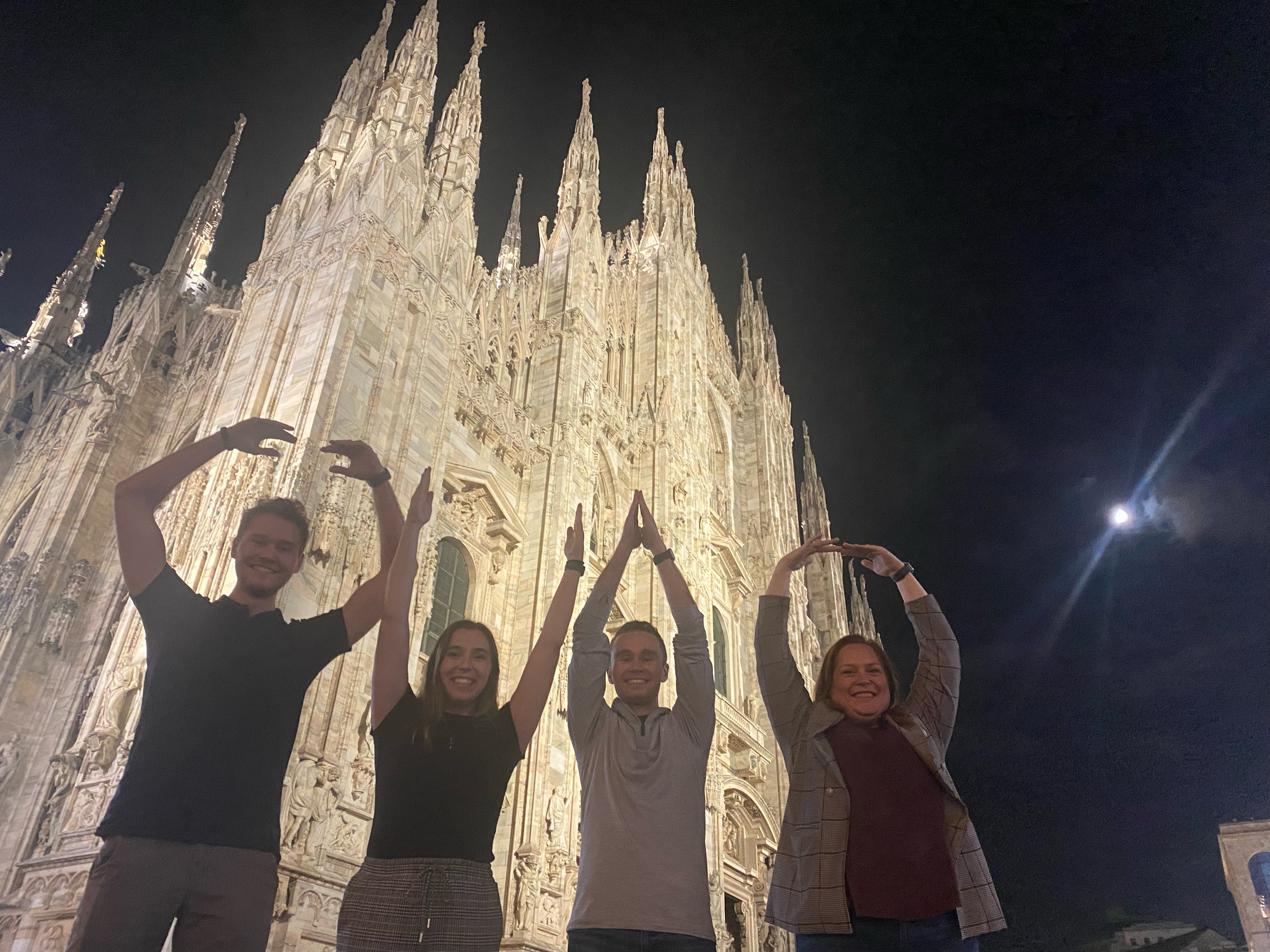Ian Harris was one of five students who traveled to the International Astronautical Congress (IAC) in Milan, Italy, to share his research. Ian is a senior majoring in aerospace engineering, astrophysics and astronomy, physics, and minoring in nuclear engineering and mathematics.
Tell us the basics about how you came to do the IAC trip.
I started research on ambient air ion thrusters and their potential for sanitizing air back during my sophomore year. I have been working on this research for about two years now and have conducted several successful tests showing that ambient air ionization and plasma have an effect on killing harmful microbes such as fungi and bacteria. Now I am more of a propulsion person, so I would have never guessed I would have ended up researching microbiology, but that is where my curiosity led me. In terms of IAC, I submitted an abstract detailing my work and its potential for helping improve human health through having cleaner environments in space and a few months later found out I got in!
What was the biggest challenge that came with the experience? What was the biggest win?
This trip overall was a new experience for me because it was my first time out of the country, and so it was my first time in Italy. The conference itself was a massive event with about 15,000 people in attendance. All in all, I would say the biggest challenge I faced was having a lot of moments where I was not familiar with what to do. It may seem silly, but even getting to the hotel was a challenge because here I landed in a new country at 6 a.m. (midnight our time) and could only communicate with some people there to find directions to a hotel in a city I have never been to. It was certainly overwhelming at first, but after a day or two things started to click – words and phrases as well as how to get around. In terms of the biggest win, my brother Nikolas Harris and I traveled together to IAC to talk about my research with Starlab and we were able to network at a reception event hosted by Starlab and Hilton Hotel with leads from NASA as well as CEOs and founders of companies worldwide. It was a very good experience to connect with people who carry very vast experiences and advice with them.
What have you learned about yourself or your field from this experience?
What I learned from this trip is graduate school is exactly where I want to be after I graduate. The research side of undergrad has always excited me, and to be able to finally give a formal presentation on the work I did to an international audience was exactly the experience I needed to reaffirm my aspirations to pursue graduate school. I also learned that the space industry is a very well-connected field because the same people tend to travel to the same conferences, so it makes meeting colleagues very fast from what I have experienced so far.
Any advice for students who want to do something similar?
My advice for students looking to get involved in research is find something you are passionate about and run with it. Research may seem like a daunting task to get started, but it is so rewarding to find a problem that is important to yourself and then create a solution to it. I got involved in engineering because I enjoy solving problems and using those solutions to help others. It’s all about finding what resonates with you, then running with it until apprehended.
